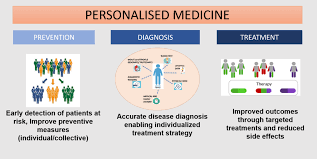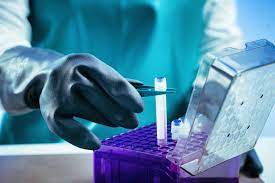"Personalized" drugs have received a lot of hype. Individuals have different characteristics at the genetic, physical, environmental exposure, and psychological levels, which means that interventions must be made for their nuances and unique characteristics in order to effectively control the diseases they may have. This belief is supported to a certain extent by emerging technologies, including genomics, transcriptomics, proteomics, imaging technology, and electronic health monitoring equipment, which reveal the wide range of differences between individuals that lead to the development of diseases.
Precision medicine aims to improve medical care by understanding the underlying molecular mechanisms, so as to develop more effective treatment strategies. Due to the rapid advancement of technology, a large amount of information can be obtained from the analysis of a single patient, which makes this possible.

It is necessary to consider collecting materials and data from clinical trials through different technologies (e.g., genomics, transcriptomics, proteomics, metabolomics, etc.) to ensure transformational utility. Panomics is a combination of all the data obtained from different methods, which can help unravel the complexity of pathological conditions and provide clinical guidelines to guide patient care, thereby promoting the progress and success of precision medicine. These methods present challenges ranging from experimentation to interpretation procedures.
In today's world, information is widely spread through social media, and any material can reach a wide audience in less than a minute. Given that medical information is accessible through digital tools and the trend continues to grow, it is necessary to empower patients based on expert advice to avoid potential unknowing and unsafe effects. Therefore, new emphasis must be placed on the working methods of ethics review committees or research ethics committees, as well as transparency and informed consent procedures. Moral education and training of healthcare professionals is also an integral part of their participation in the innovative medical process. It must be pointed out that health inequality is a global phenomenon that needs to be addressed.
A recent study by Abernethy and colleagues showed that due to comparative efficiency studies, economic analysis, and technology evaluation, some countries lack the resources to translate new technologies and treatments into clinical practice because they are more costly. We must encourage global collaboration (ie, clinical research, translational research projects, and biobanks) to reduce these differences and achieve equality in healthcare on a global scale. In addition, if precision medicine can reduce future healthcare costs (for example, in the next 50 years), it can reduce wrong doses, drug reactions, unnecessary treatments, and late diagnosis. The development of next-generation sequencing and its integration with clinical practice has become one of the key examples of genome sequencing cost reduction. From the US$1 billion in the first draft of the human genome to US$1,000 today, it is comparable to conventional clinical testing.

In addition, in order to promote new discoveries and improvements, the information collected in a dedicated database must be globally accessible so that the data can be processed and interpreted quickly. To support the transition from oncology to patient-centered care, it is necessary to share data to unlock potential and advance research. In addition, medicine is making rapid progress in identifying the unique genetics of patients to break the barriers of prevention, diagnosis, and treatment. Researchers, clinicians, industry representatives, regulatory agencies, and more importantly, patients must work together to ensure that personalized medicine revolutionizes healthcare. The goal of the health system and the scientific community should be to change from a passive medical viewpoint to an active medical viewpoint, which is closely related to innovation and ethical issues.